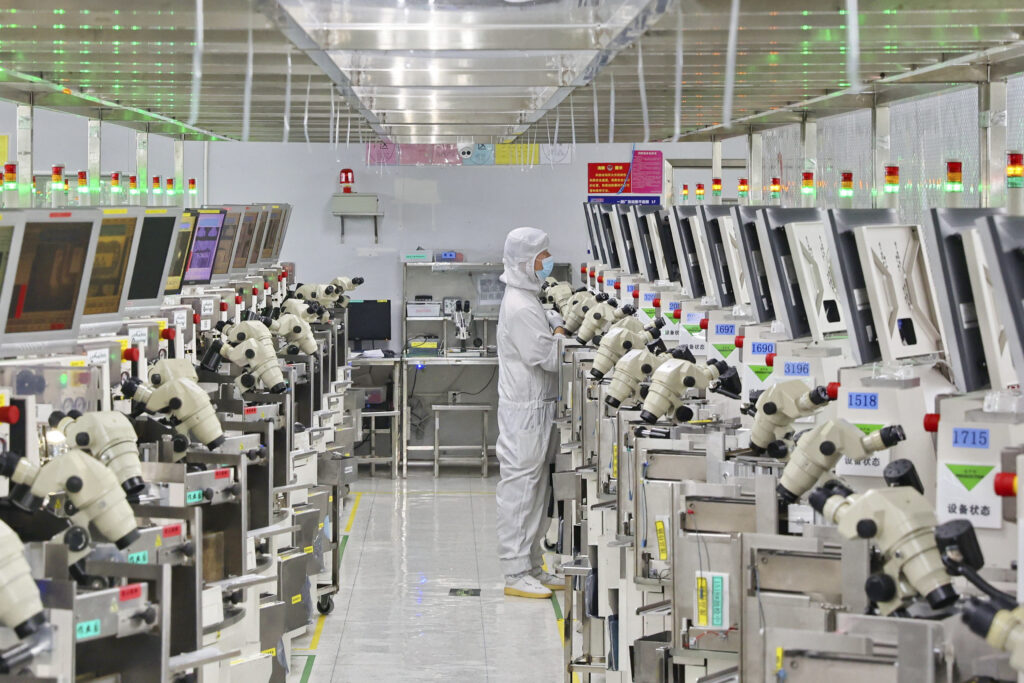China has hit back at U.S. trade restrictions, banning exports of gallium, germanium and other high-tech materials essential for advanced manufacturing and military technology.
The move, announced by China’s Ministry of Commerce on Tuesday, could prompt economic conflict between the two countries and their respective supply chains.
China has clearly decided to target materials essential to the production of semiconductors, mobile devices, solar panels, and defense systems.
The Chinese government’s actions follow the expansion of the U.S. government’s Entity List, adding 140 Chinese companies that are subject to strict export controls on semiconductor manufacturing equipment and advanced chip technology.
The United States maintains that these measures are necessary for national security.
Chinese Foreign Ministry Spokesman Lin Jian said China firmly opposes “the United States overextending the concept of national security” to abuse so-called “legal” export control measures and unilateral sanctions. .

more
via Chinatopix AP, file
Prices of major minerals will skyrocket in 2024
China’s superiority in these vital resources lends great weight to China’s recent moves.
It produces 60 percent of the world’s germanium and 98 percent of its gallium, according to U.S. Geological Survey data. The United States relies on China for about half of its gallium and germanium supplies.
In 2022 alone, China exported 23 tons of gallium. This amount is essential for manufacturing high-bandwidth memory chips and military hardware.
Despite the United States having untapped mineral deposits, there is a lack of active mining activity for these materials, leaving the industry vulnerable to price shocks.
Antimony is also a newly restricted mineral and is essential in flame retardants, batteries, and night vision equipment used in military systems.
This year, the price has more than doubled to more than $25,000 per tonne.

more
STR/AFP (via Getty Images)
Japan caught in the crossfire
Beijing’s retaliation is in direct response to President Joe Biden’s efforts to curb China’s technological advances.
The US government’s recent export restrictions are aimed at blocking China’s access to cutting-edge technology. The U.S. Department of Commerce’s new rules primarily affect Chinese companies, but will also affect companies in Japan, South Korea, and Singapore.
China initially took a cautious stance toward U.S. trade measures, perhaps to protect its developing semiconductor and artificial intelligence industries.
Recent reactions suggest a change in strategy. China is using its near-monopoly to assert its influence by targeting minerals vital to the world’s high-tech economy.
Chinese industry groups rallied behind the government’s stance. The China Semiconductor Industry Association criticized the U.S. regulations and warned that supply chain disruptions and rising costs would ultimately hurt U.S. companies.
“U.S. chip products are no longer safe and reliable, and related industries in China will need to be cautious about purchasing U.S. chips,” the group said.

more
Kiyoshi Tanno/Getty Images
US-China battle for high-tech supremacy
The China Automobile Manufacturers Association said the U.S. government’s actions undermine international trade norms.
“These actions seriously violate market economy laws and the principles of fair competition, and undermine the international economic and trade order,” the group said in a statement.
The trade conflict between the United States and China reflects an increasingly intense struggle for control of the world’s most important resources and technologies.
“Such malicious repression seriously harms the interests of all countries,” Lin said, as tensions between the two economic giants show no signs of easing.
This article includes reporting from The Associated Press



